Wydarzenia
KONFERENCJA "BEZPIECZNA DLA ŚRODOWISKA OCZYSZCZALNIA"
ZAPRASZAMY
na re-transmisję konferencji "BEZPIECZNA DLA ŚRODOWISKA OCZYSZCZALNIA ŚCIEKÓW"
która odbyła się w piątek, 25 czerwca 2021 r.
Projekt finansowany przez Narodową Agencję Wymiany Akademickiej w ramach programu
Akademickie Partnerstwa Międzynarodowe
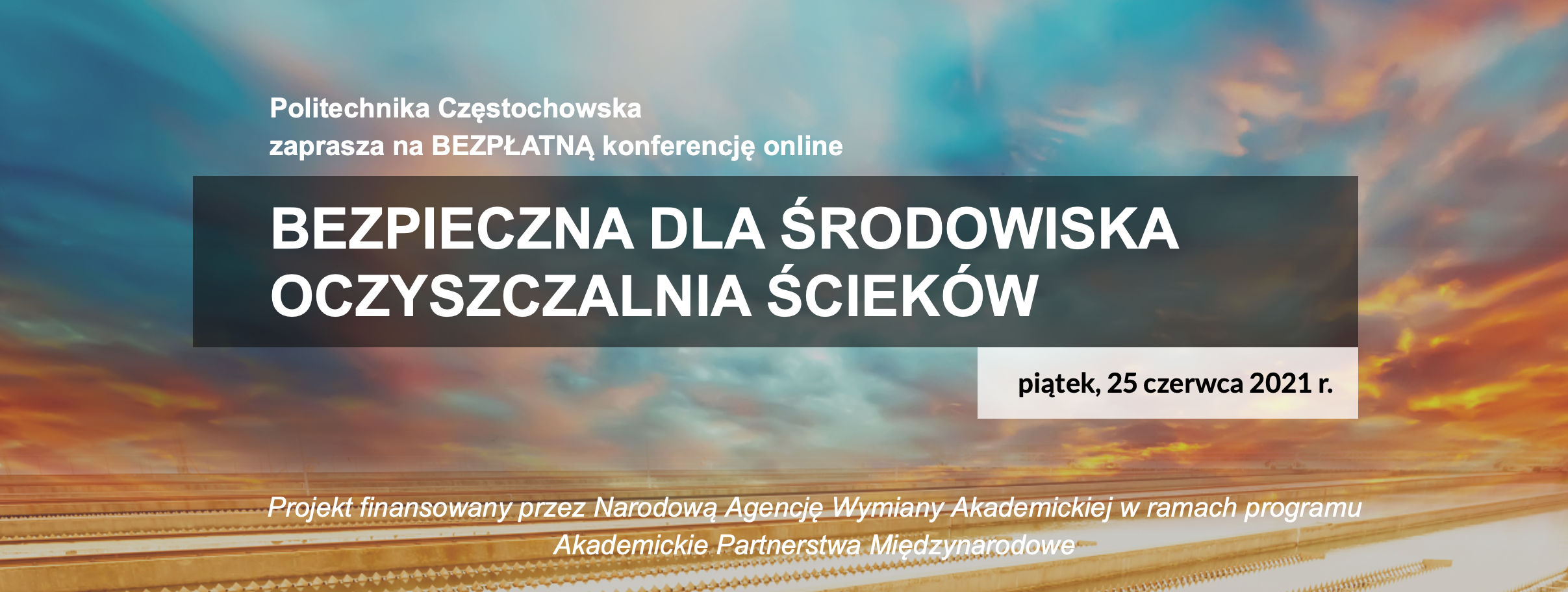
Link do retransmisji Youtube poniżej
PROGRAM
SESJA 1 WODA ZE ŚCIEKÓW
9:00-9:10
Powitanie i wprowadzenie
prof. dr hab. inż. Małgorzata Kacprzak, Politechnika Częstochowska
9:10-9:30 Odzysk wody ze ścieków - doświadczenia hiszpańskie
9:30-9:50 Rafeal Casielles, BIOAZUL SL (prelekcja tłumaczona z j. angielskiego)
Przedsięwzięcie Oczyszczalnia przyszłości
9:50-10:10 Marek Świdowicz, Narodowe Centrum Badań i Rozwoju
Grupy nowych zanieczyszczeń w ściekach i w wodzie
10:30-10:50 dr inż. Agnieszka Szuster-Janiaczyk, Politechnika Poznańska
SESJA 2 BEZPIECZNE ZAGOSPODAROWANIE OSADÓW ŚCIEKOWYCH
Projekt zmiany rozporządzenia w sprawie komunalnych osadów ściekowych i jego wpływ na cenę zagospodarowania osadów
10:50-11:10 Mateusz Karciarz, Kancelaria Jerzmanowski i Wspólnicy
SESJA 3 CYBERBEZPIECZEŃSTWO OCZYSZCZALNI JAKO ELEMENT BEZPIECZEŃSTWA ŚRODOWISKOWEGO
Ślad węglowy oczyszczalni i osadów ściekowych
11:10-11:30 prof. dr hab. inż. Jacek Mąkinia, dr inż. Ewa Zaborowska, mgr inż. Mojtaba Maktabifard, Politechnika Gdańska
Udział oczyszczalni w projekcie międzynarodowym STEP
11:30-11:50 Dariusz Kozak, Goleniowskie Wodociągi i Kanalizacja
Bezpieczeństwo cyfrowe oczyszczalni ścieków podstawowym elementem ochrony środowiska
Monika Bogdał, Kancelaria Prawna Piszcz i Wspólnicy
Dyrektywy NIS i NIS2. Wymagania stojące przed oczyszczalniami ścieków
12:30-12:50 Cyprian Gutkowski, Fundacja Bezpieczna Cyberprzestrzeń
Ochrona przedsiębiorstwa wod-kan przed zagrożeniami cyfrowymi
13:10-14:10 Wojciech Wrzesień, NASK SA
Organizator zastrzega sobie możliwość wprowadzania zmian w programie
Dyskusja
prowadzenie prof. dr hab. inż. Małgorzata Kacprzak
SEMINARIUM W CUT Z UDZIAŁEM PRZEDSTAWICIELI Z OTOCZENIA GOSPODARCZEGO
Relacja z wydarzenia
Wywiady z uczestnikami seminarium
Fotorelacja z wydarzenia
Dzień 1 (27 listopad 2019)
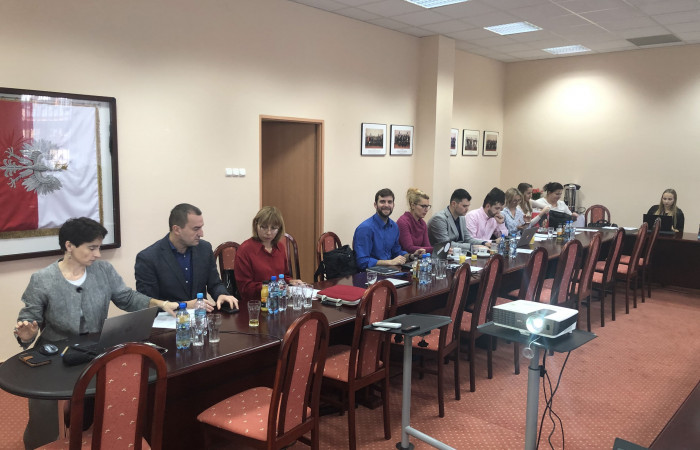
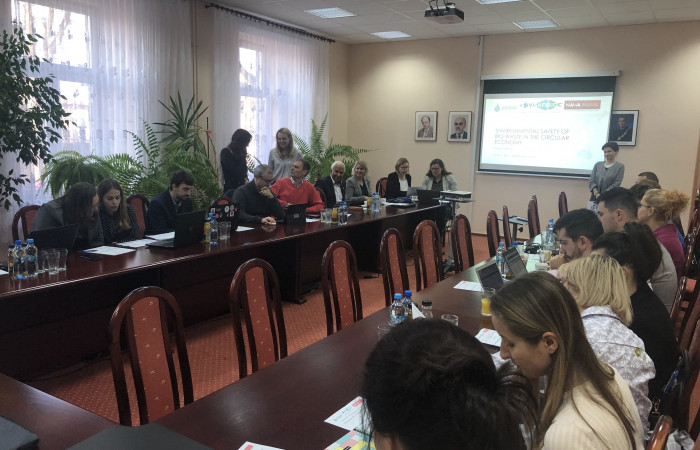
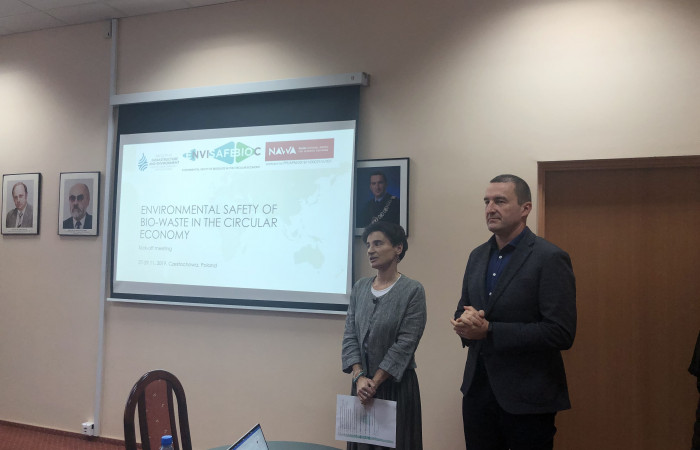
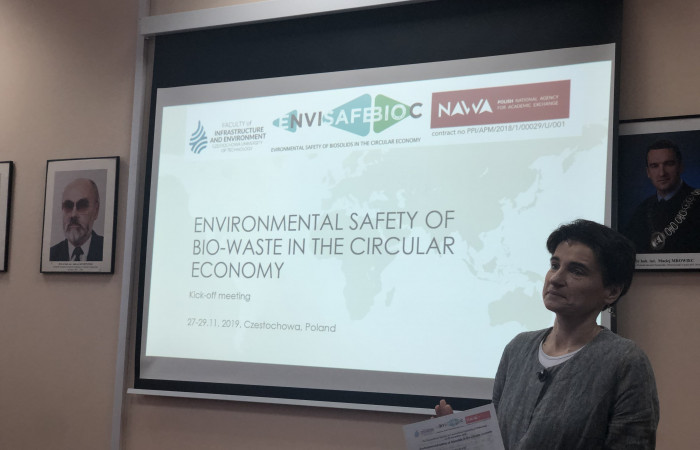
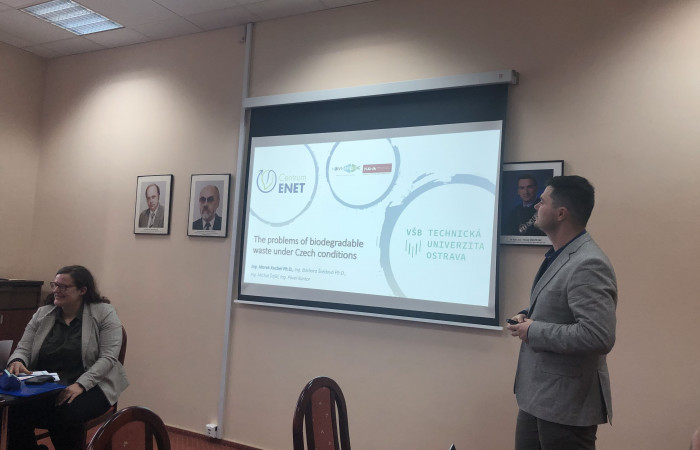
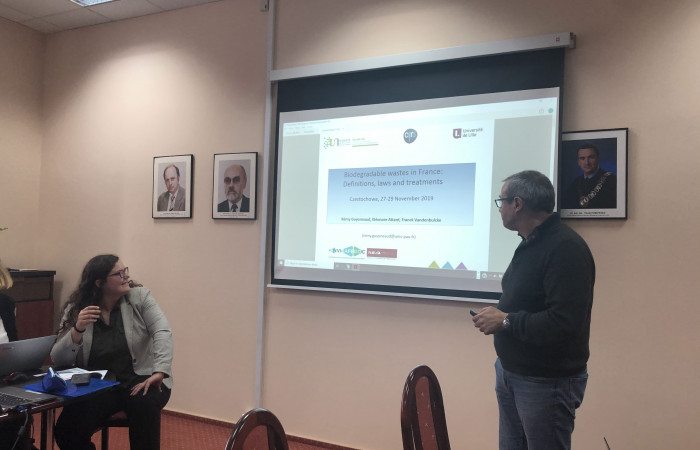
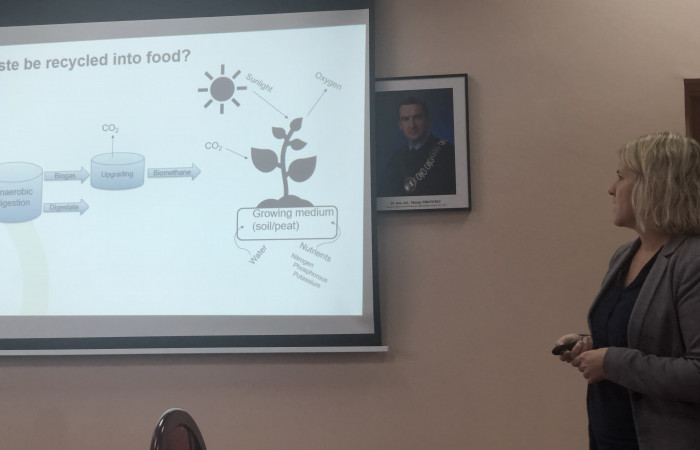
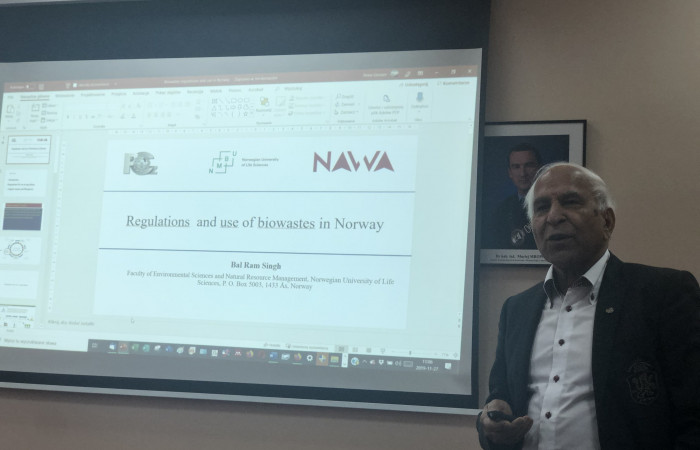
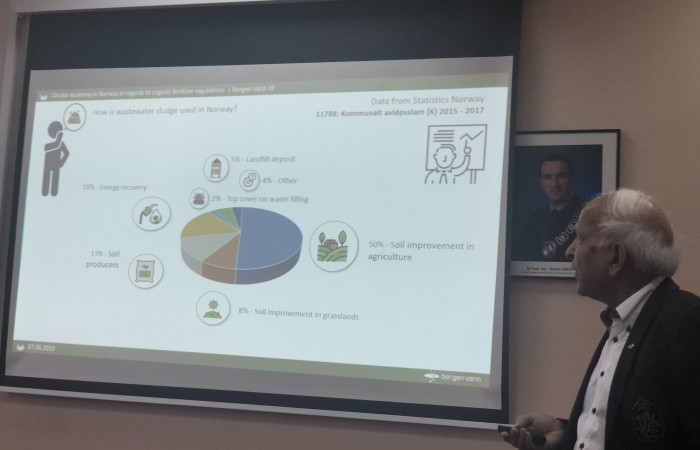
Dzień 2 (28 listopad 2019)
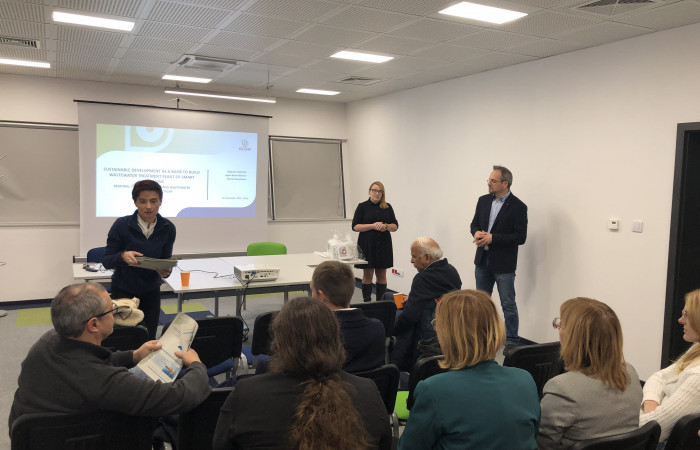
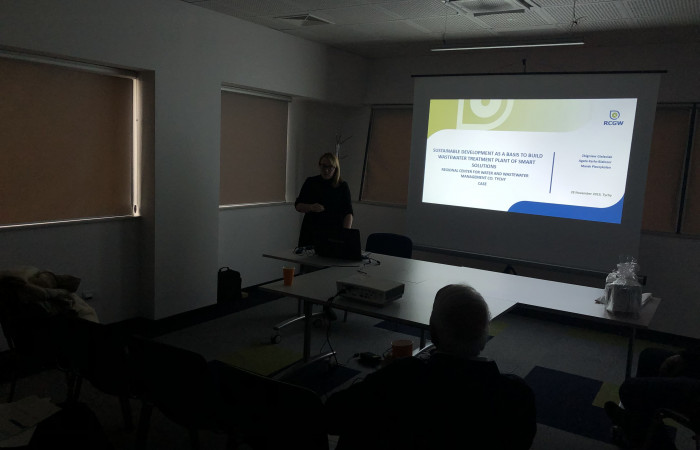
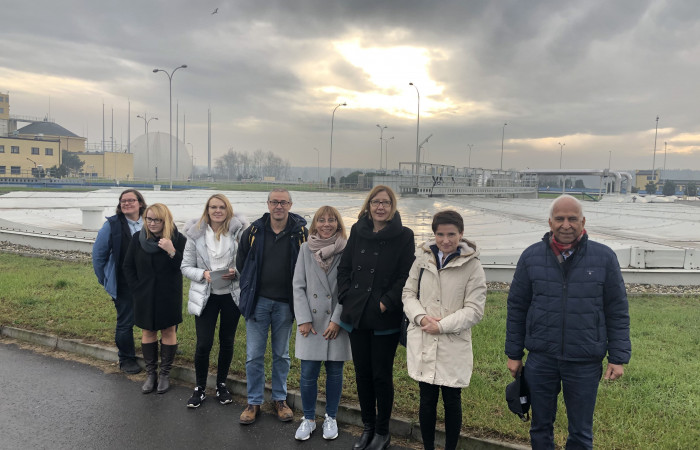
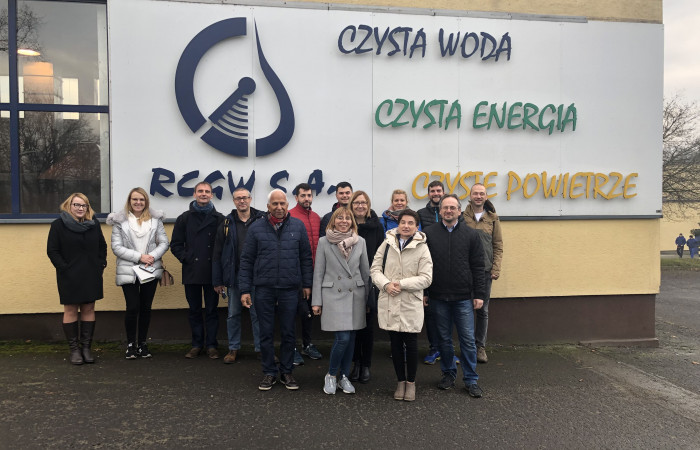
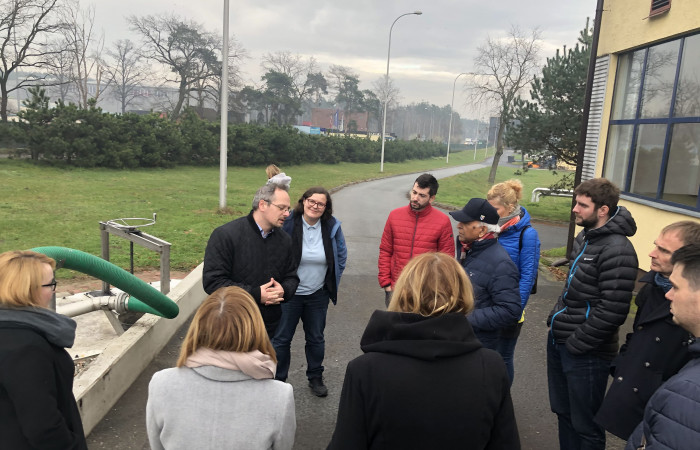
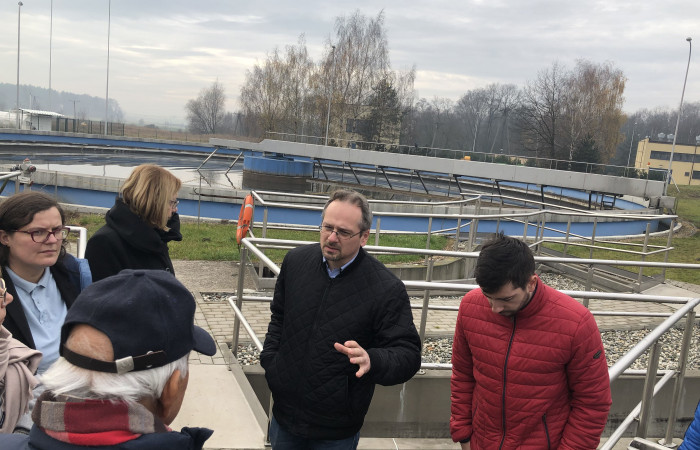
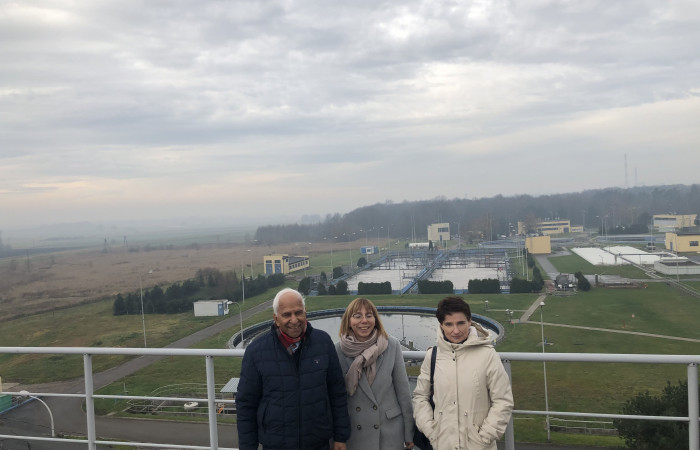
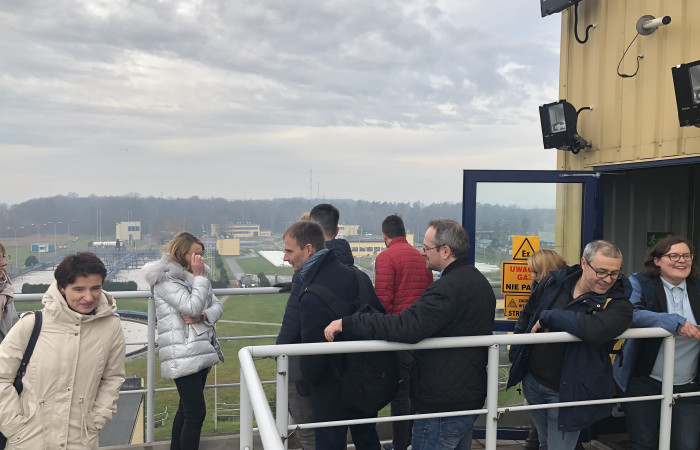
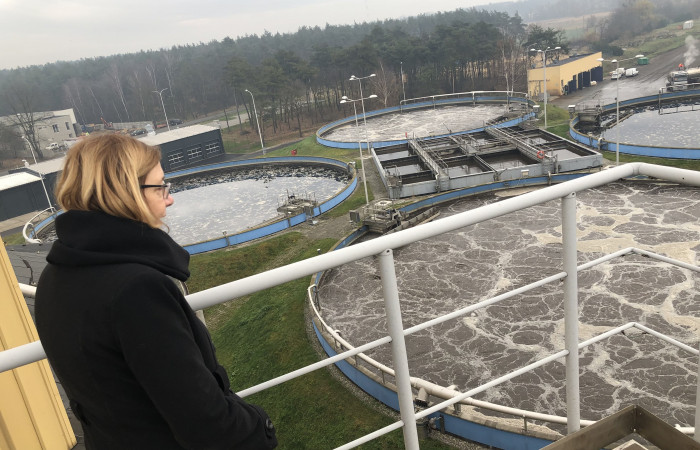
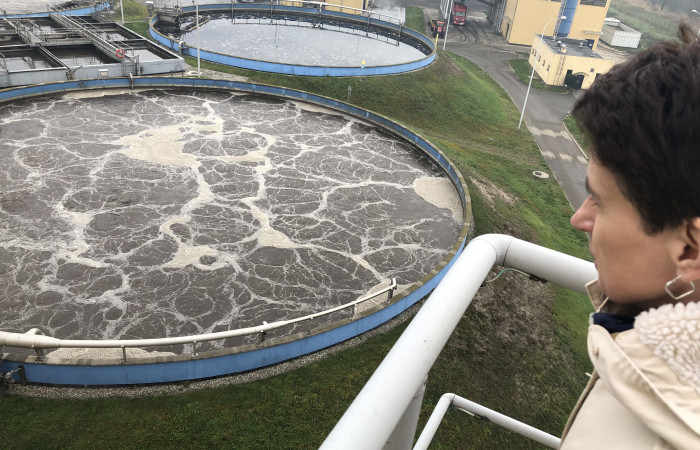
Dzień 3 (28 listopad 2019)
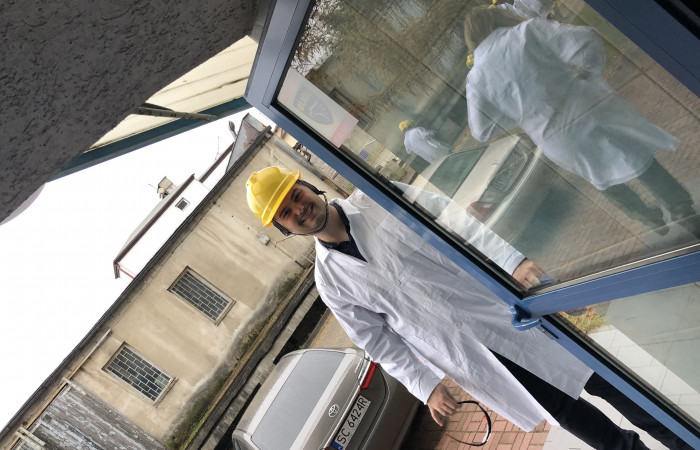
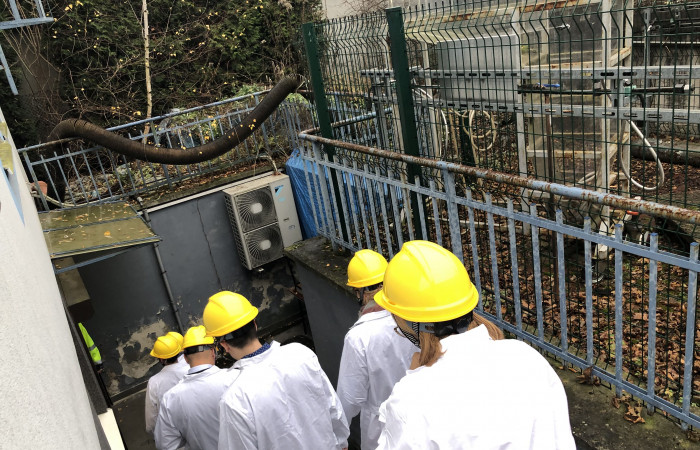
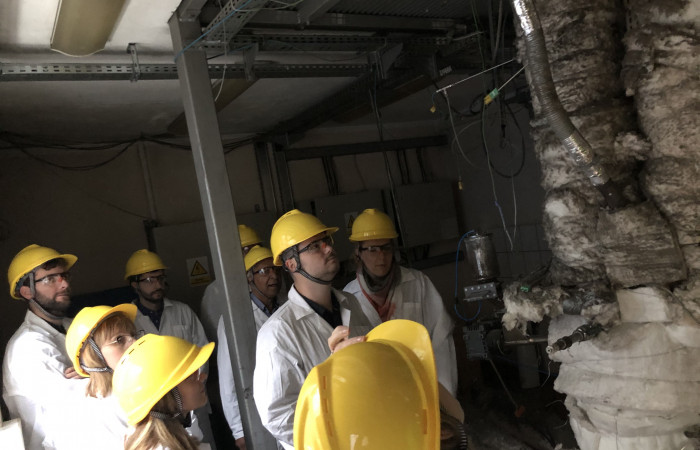
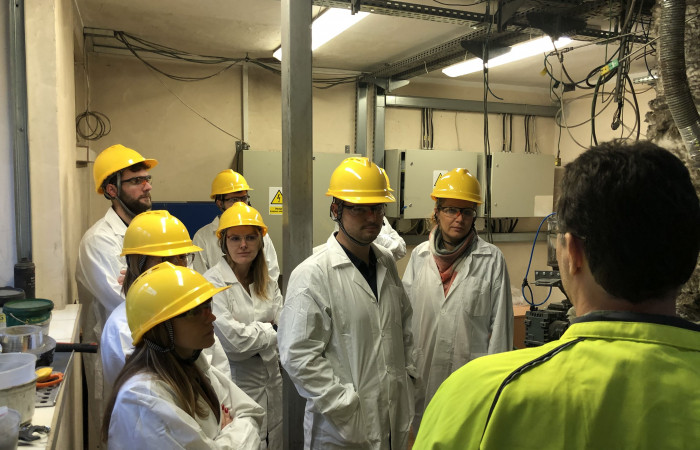
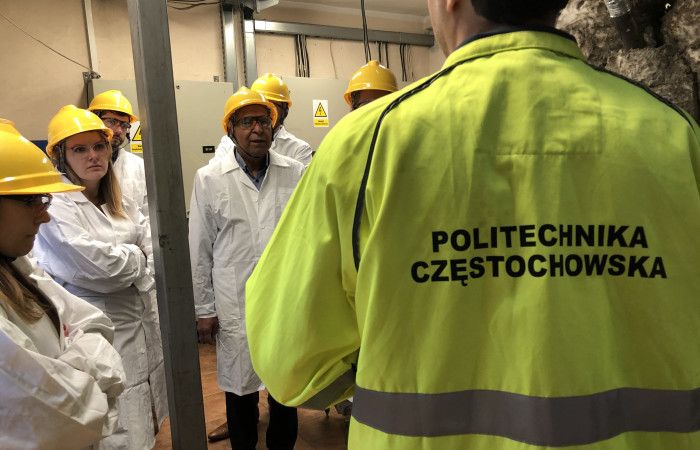
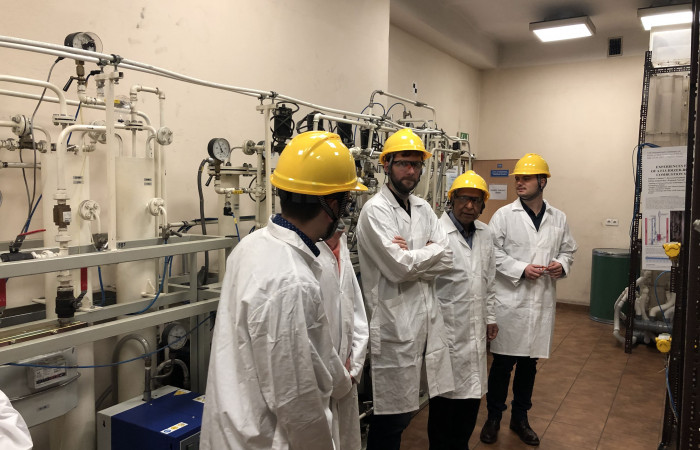
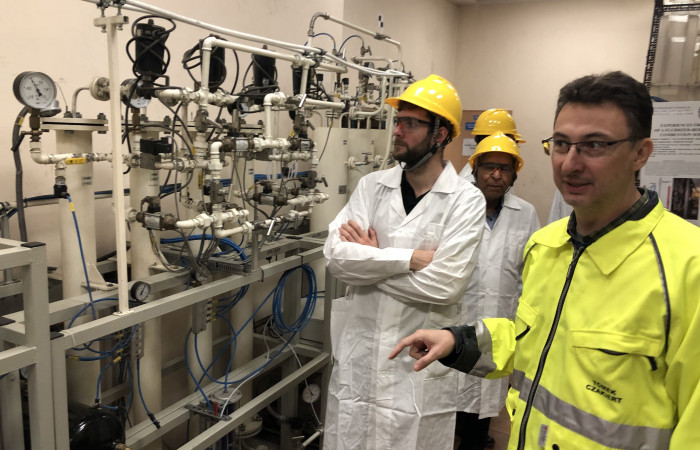
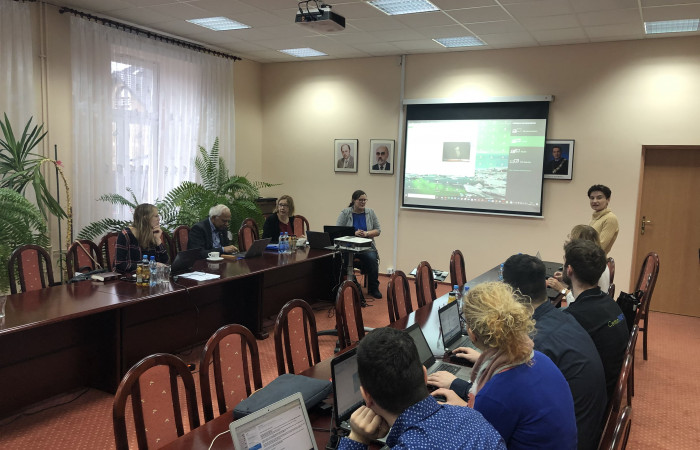
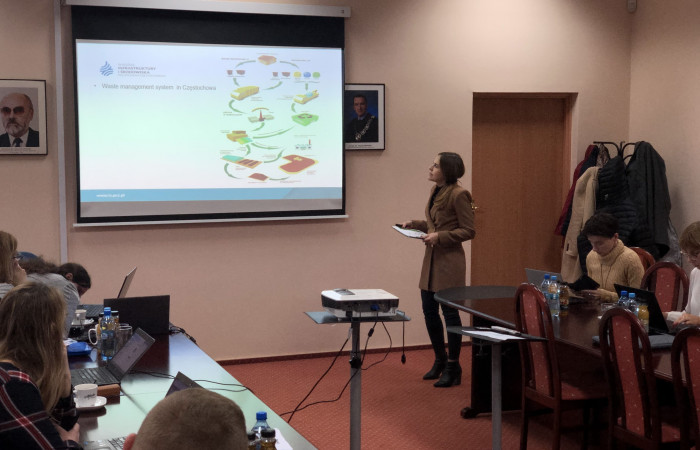
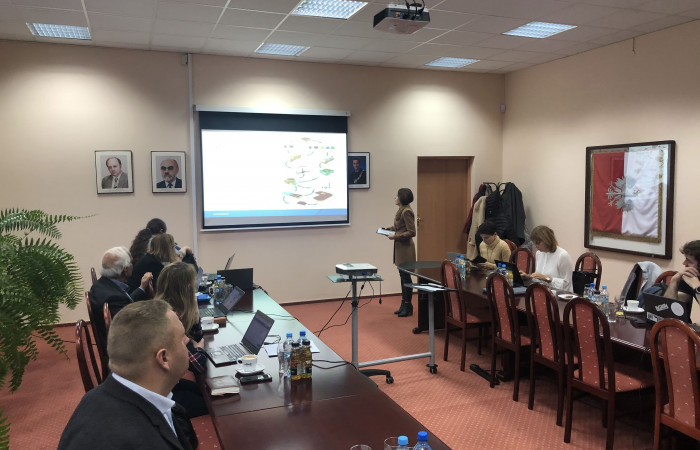
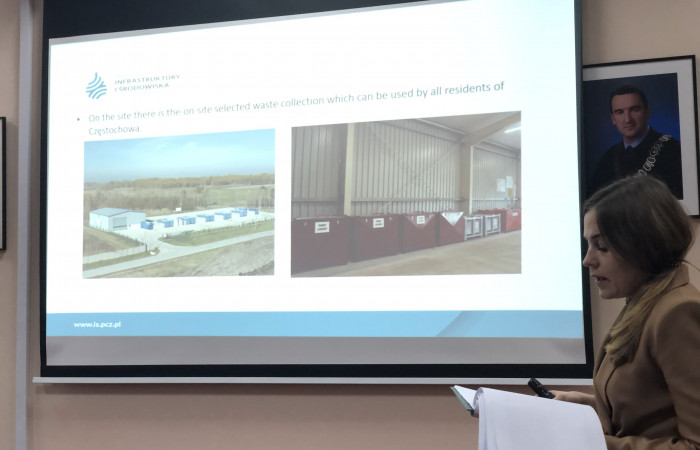
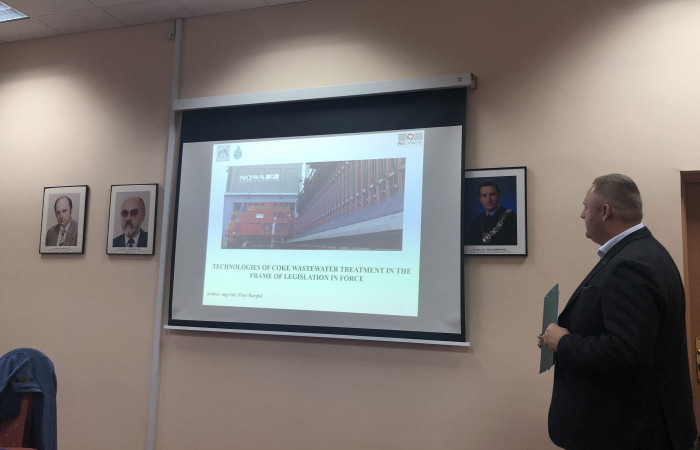
Program wydarzenia
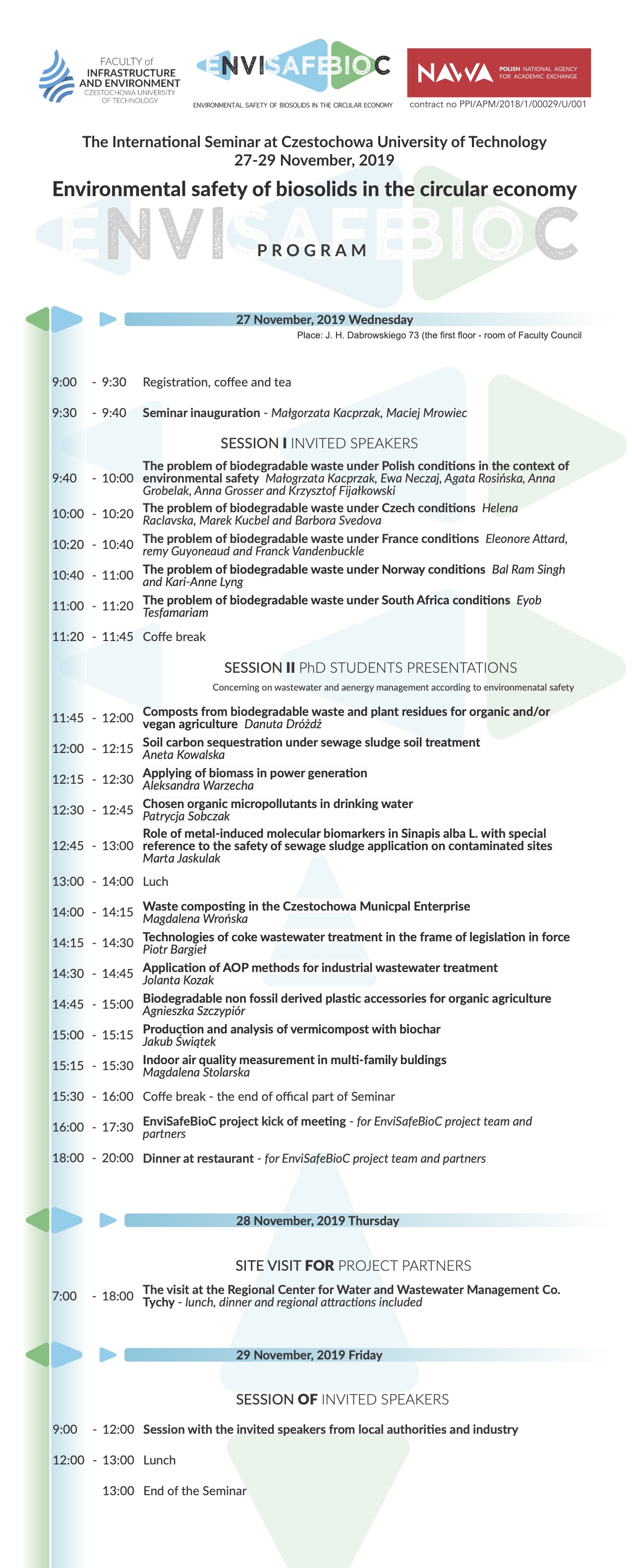
Materiały do pobrania\Prezentacje wystąpień
SESJA SPECJALNA NA KONFERENCJI SDEWES 2019 DUBROVNIK
W ramach aktywności w projekcie organizowana jest sesja specjalna na konferencji 14thSDEWES 2019

więcej informacji na stronie organizatora konferencji >>>> tutaj
Wyniki ankiety zainteresowania materiałami z sesji specjalnej
/raport z ankiet/
Rodzaj prowadzonej działalności
Większość respondentów zaineresowanych wynikami projektu jako główny rodzaj swojej działalności podało „naukę” (71%) , następnie „edukację” (45%), w dalszej kolejności” małe i średnie przedsiębiorstwo” (23,8%) oraz „duże przedsiębiorstwo” (7%) (Figura 1).
Respondenci ankiety zainteresowani sposobem wykorzystania materiałów konferencyjnych specjalnej sesji Environmental safety of bio-waste in the circular economy – potential for energy and matter recovery organizowanej na konferencji SDEWES2019 w ramach projektu EnvisafeBioc, wywodzą się zarówno ze świata nauki, edukacji i biznesu, co potwierdza możliwość połączenia tych trzech grup w budowaniu innowacji na poziomie światowym. Materiały z organizowanej sesji specjalnej są w obszarze zainteresowania także i przedsiębiorców, co potwierdza aktualność zagadnień poruszanych w projekcie.
Figura 1. Rodzaj prowadzonej działalności
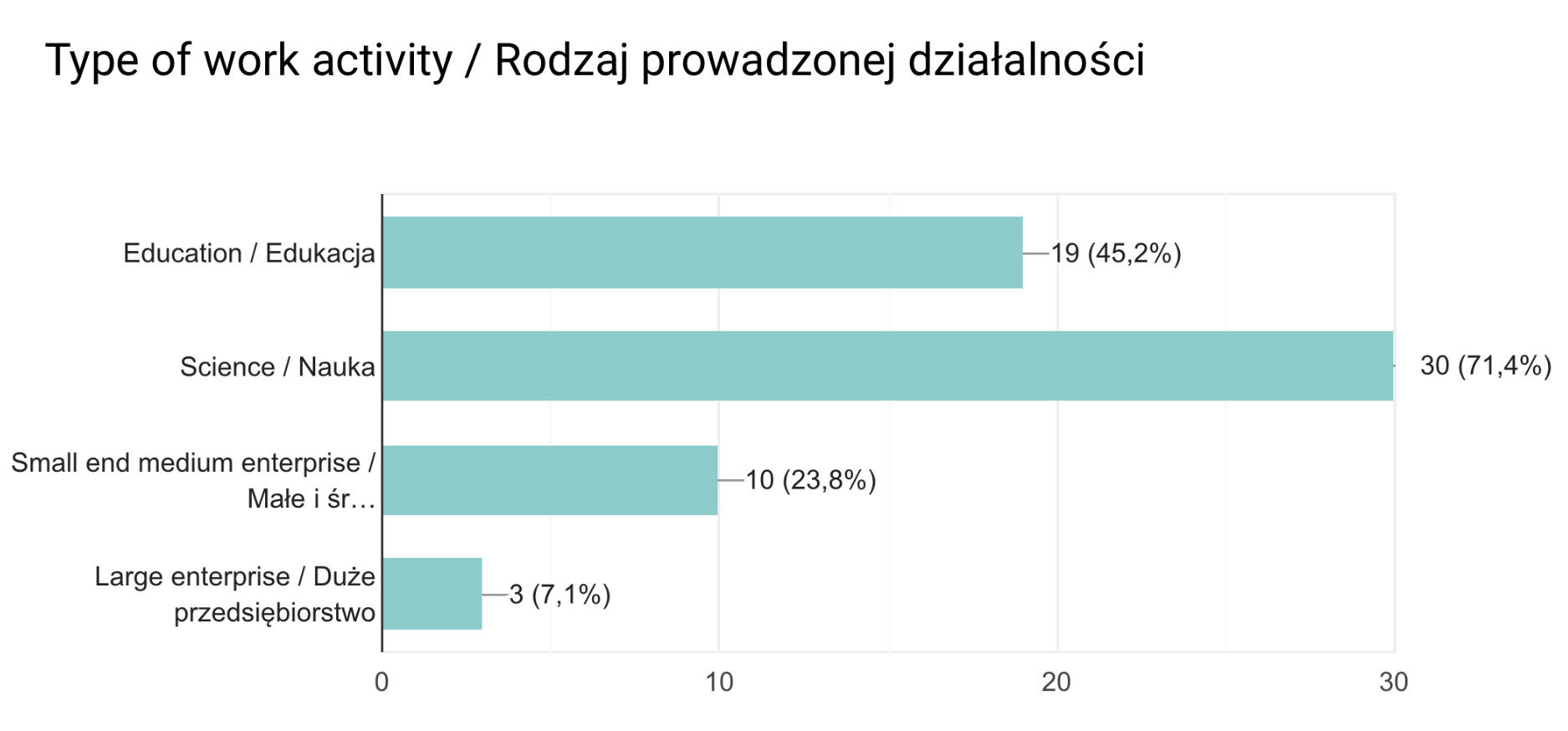
Sposób wykorzystania materiałów konferencyjnych
Przeważająca liczba respondentów (Figura 2 )(59,5%) udzieliła odpowiedzi w zakresie A. W kolejnej grupie odpowiedzi (ok. 40%) znalazły się odpowiedzi K oraz H. Odpowiedzi w zakresie 20-28 % udzielili respondenci w zakresie zastosowań C, D, F, K oraz M. Pozostali respondenci (9,5-19 %) udzielali odpowiedzi B, E, G, H, J. Najmniej zainteresowani byli respondenci kwestiami „M. Establishing cooperation with industry aimed at adjusting the university's educational offer to market needs / Nawiązywanie współpracy z przedsiębiorcami mające na celu dostosowanie oferty edukacyjnej uczelni do potrzeb rynkowych”.
Respondenci w najmniejszym stopniu są zainteresowani ingerencją w tworzenie programów nauczania lub takich możliwości nie widzą. Wkład otoczenia gospodarczego w kwestie tworzenia programów nauczania jest dosyć nowy i wielu potencjalnych zainteresowanych nawet nie wie, że istnieją takie możliwości. Ponadto, jak wynika z ankiety zainteresowanie tematyką projektu EnvisafeBioc jest bardzo duże, co świadczy o wysokim potencjale naukowym i innowacyjnym projektu.
Figura 2. Sposób wykorzystania materiałów konferencyjnych
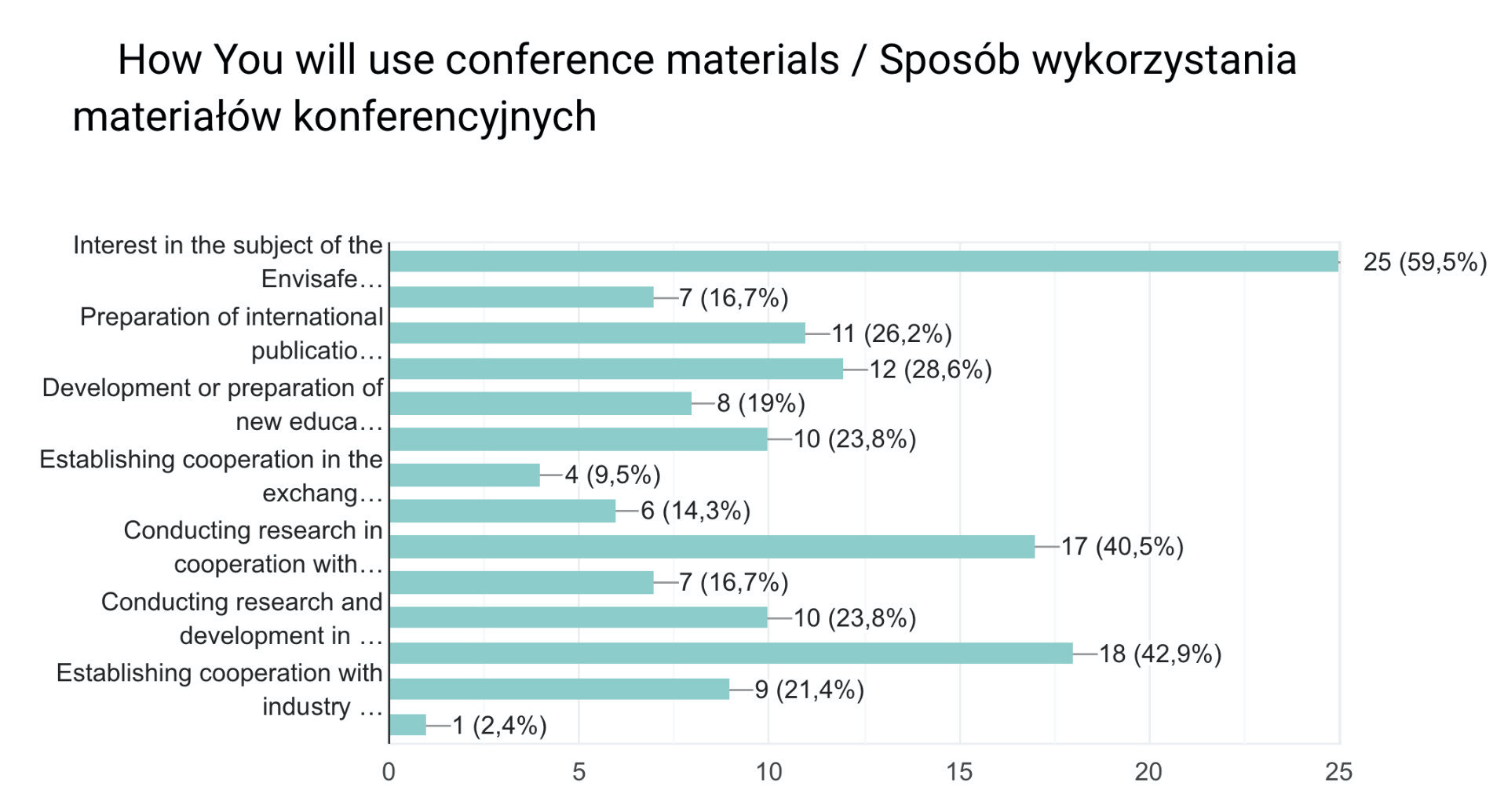
Materiały z sesji specjalnej do pobrania poniżej
FOTORELACJA Z WYDARZENIA
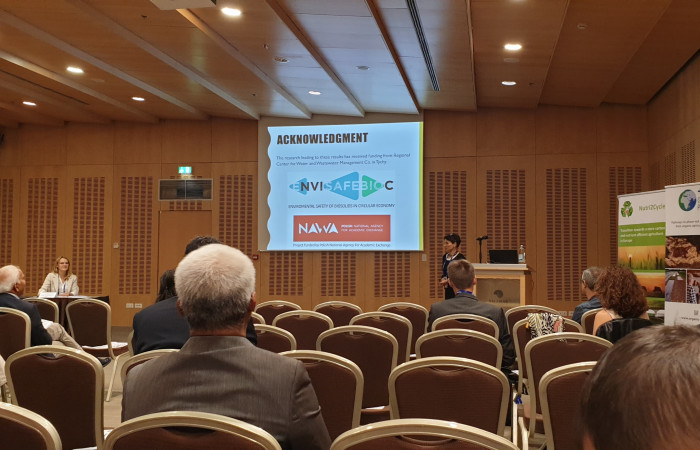
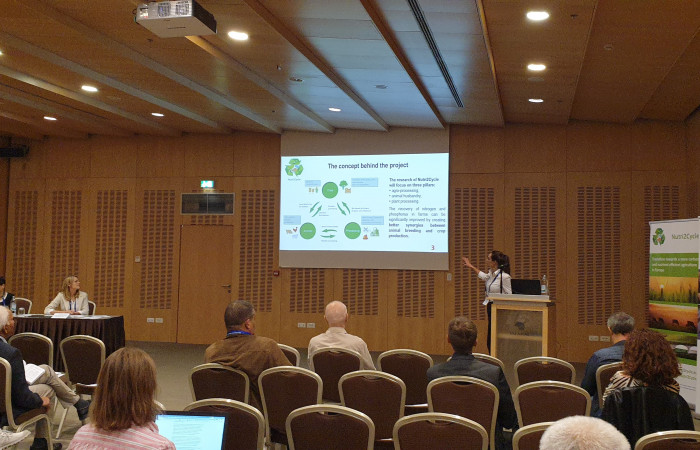
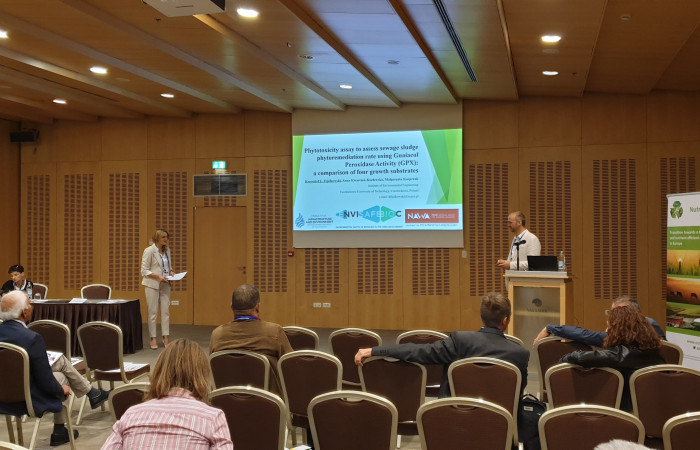
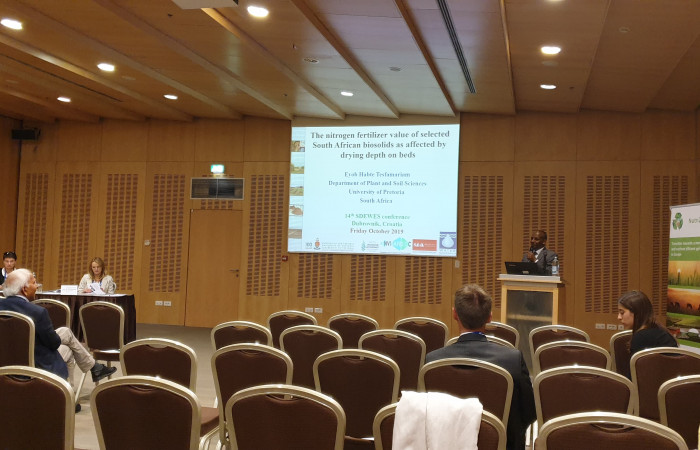
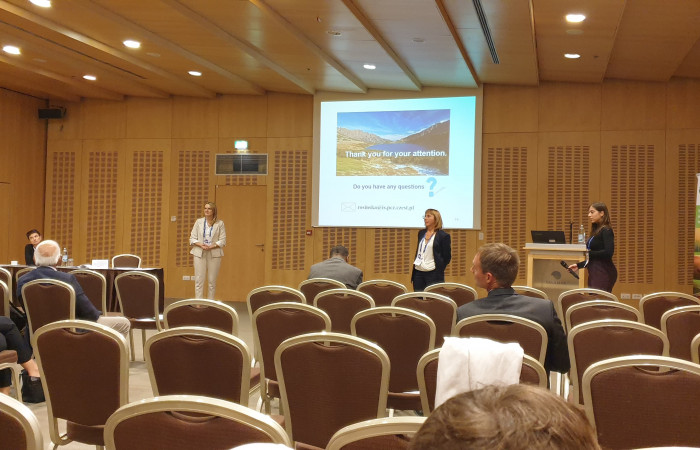
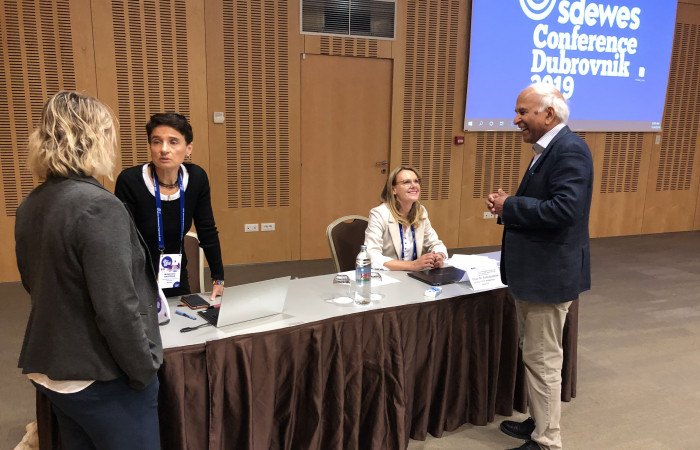
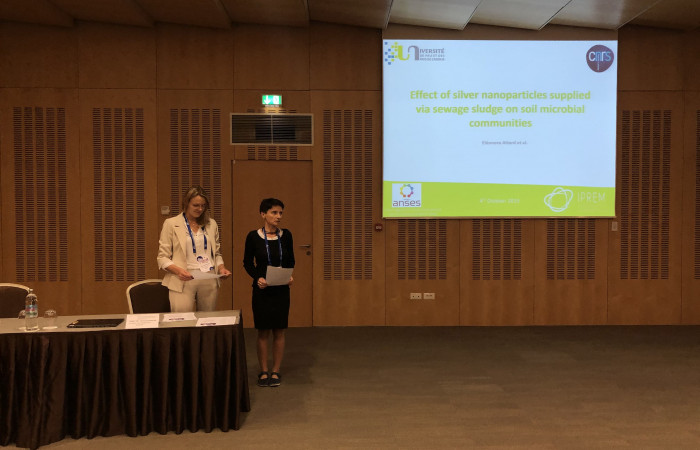
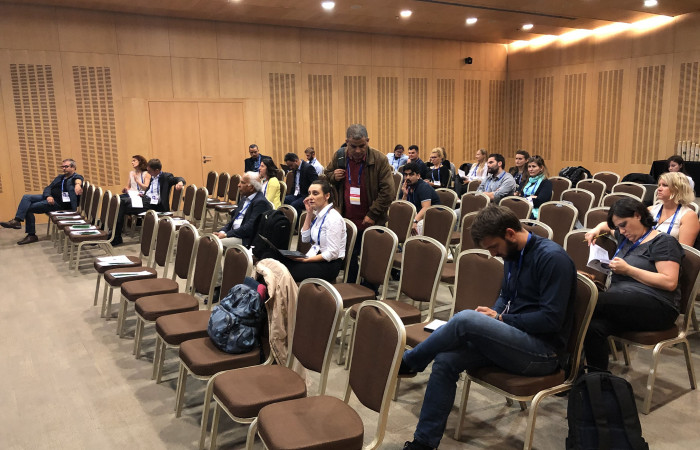
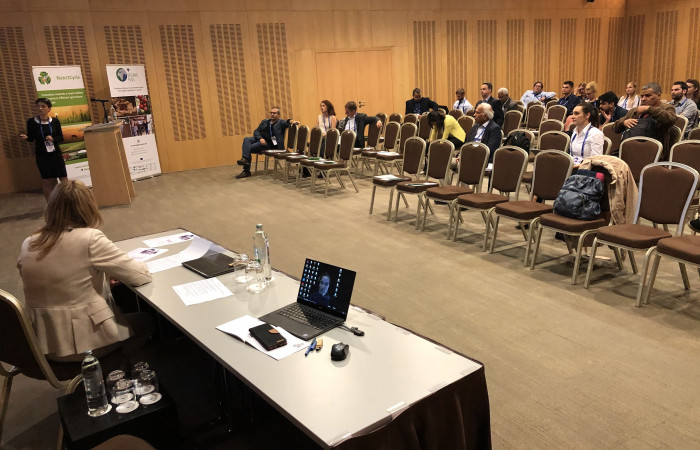
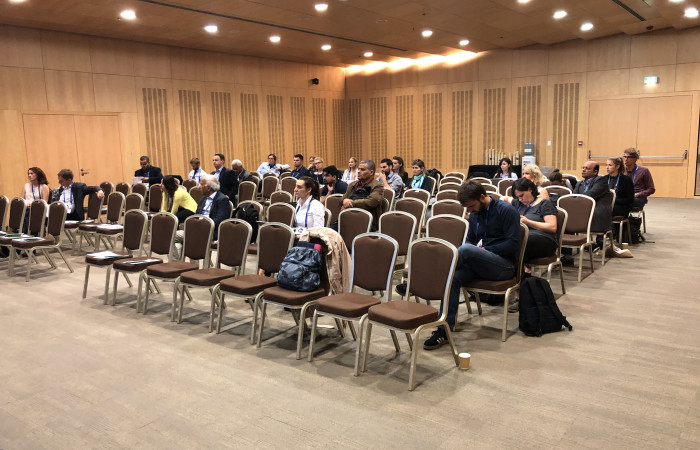
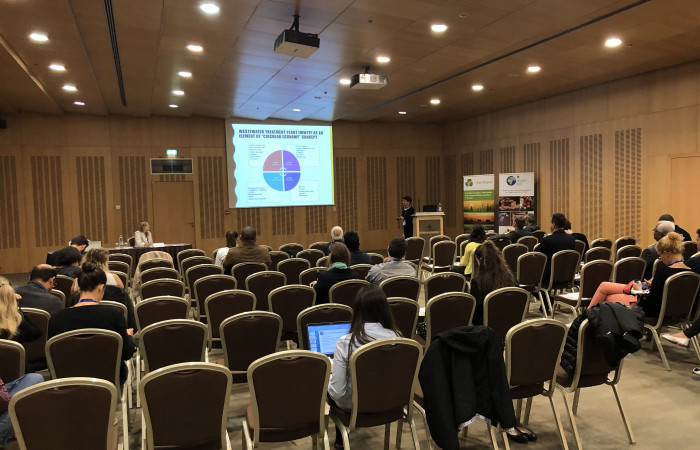
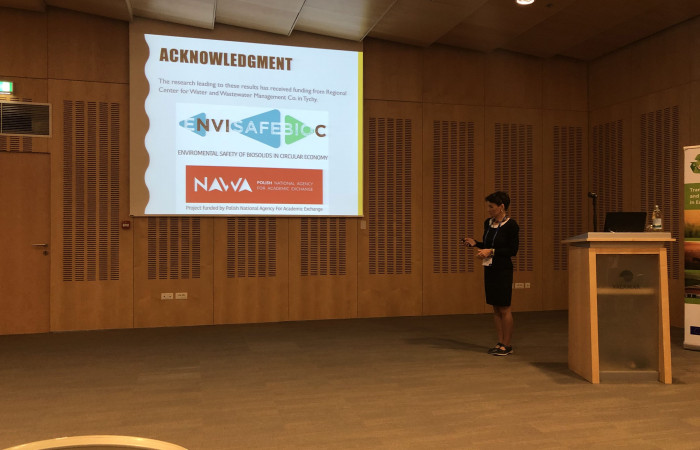
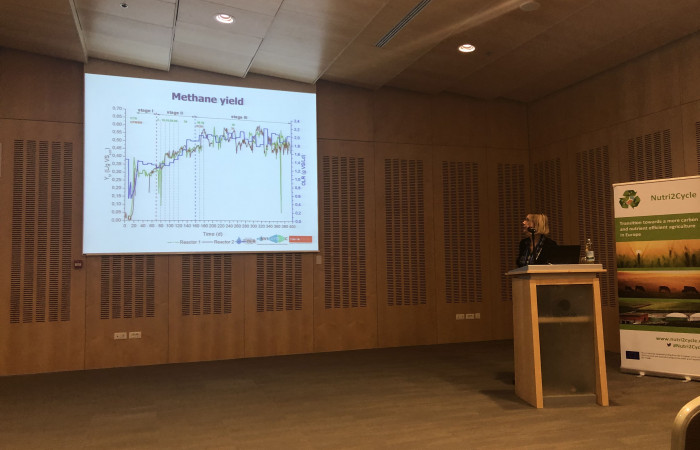
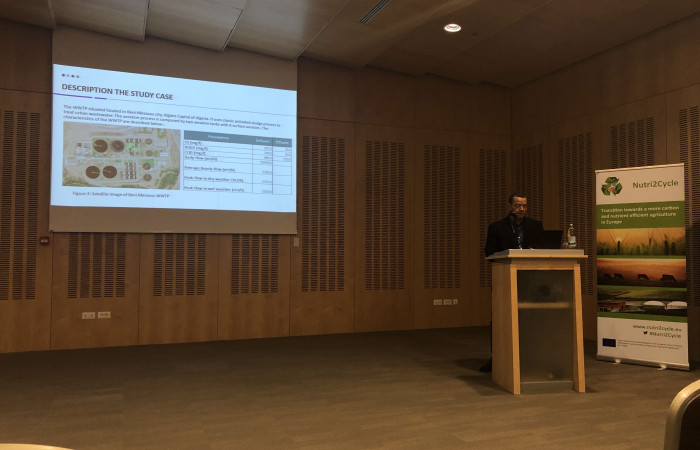
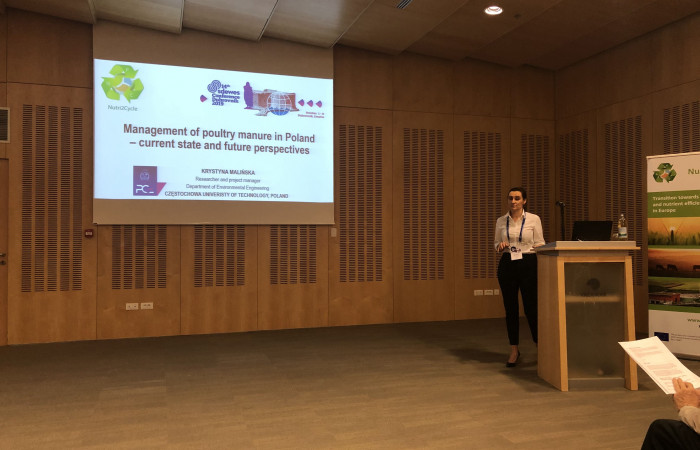
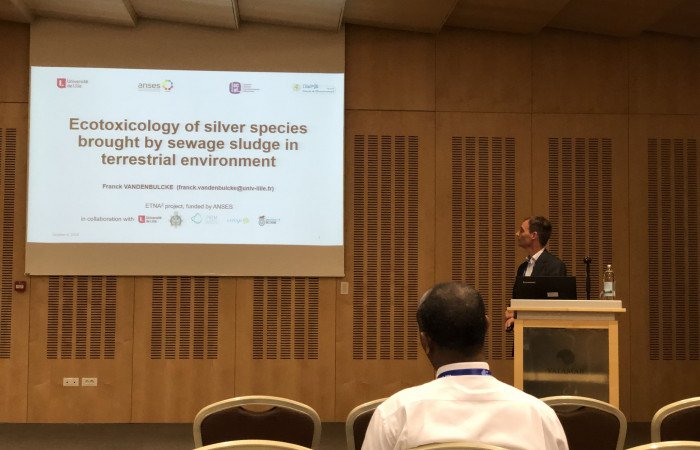
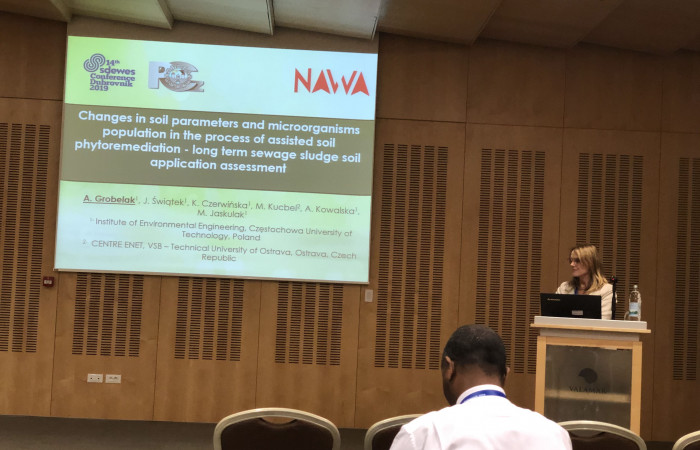
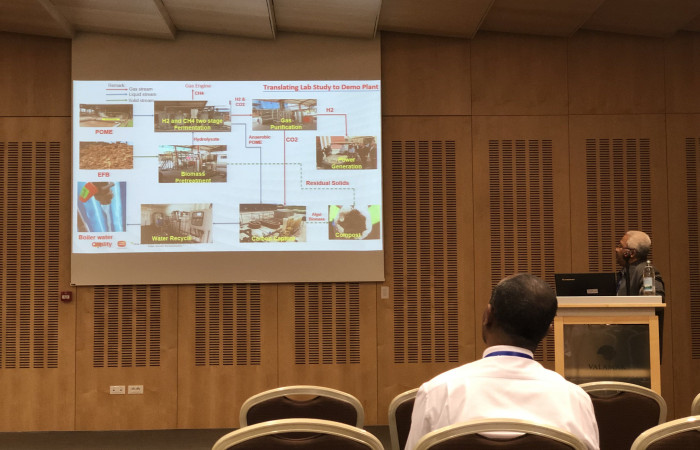
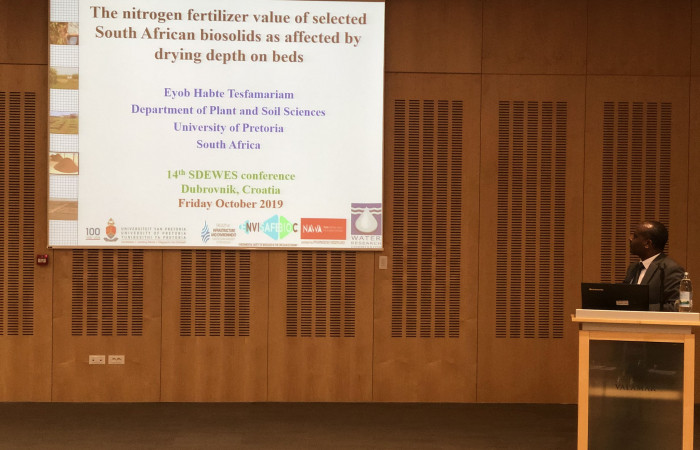
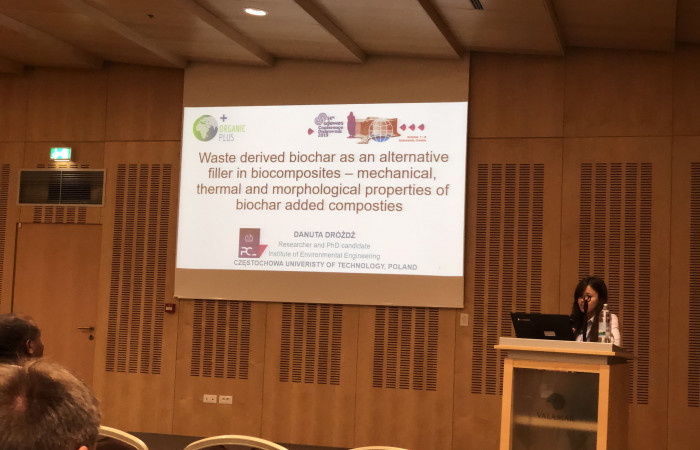
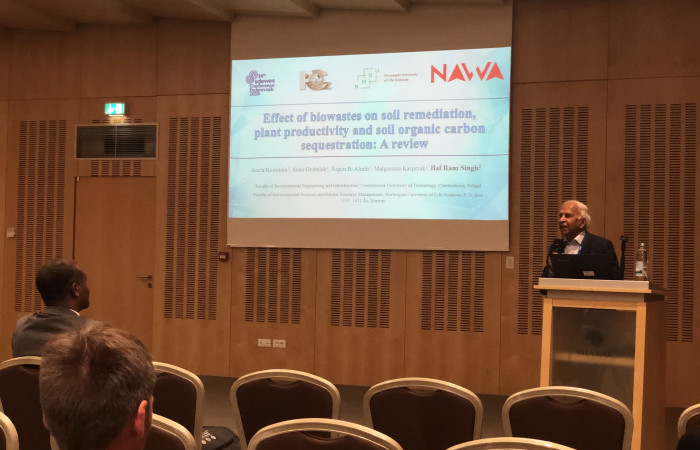
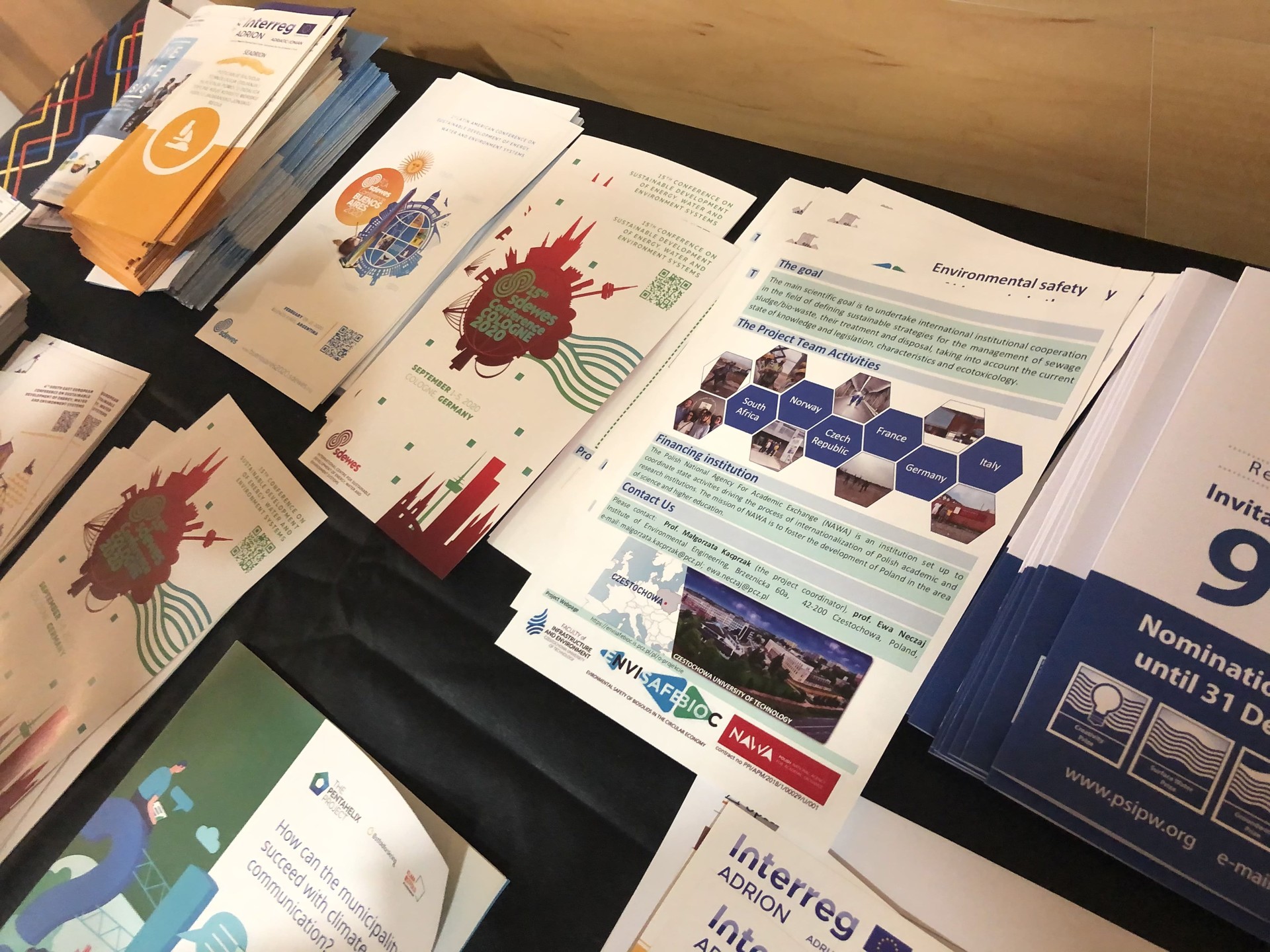
Session resume:
For many years, organic biowaste has been considered solely as a waste with no added value, land application being the most frequent and logical disposal issue for soil fertilization. However, in urban areas, or in countries with limited spreading-area or with surplus of nutrients in the soil, other ways of biowaste treatment and disposal are required. In addition to this, stricter regulation limits for organic micropollutants have been proposed and come into force in most of the EU countries, limiting and even banning land application in some regions. In conclusion, environmental European policies are pushing towards the recovery of resources from biowaste which starts to be seen as a permanent, valuable and non-transferable stock of organic resource that can be locally exploited.
The main objective of the proposed session is to discuss the most sustainable strategies for sewage sludge management, including treatment and disposal, considering the present state-of-art in terms of legislation, characterization, ecotoxicology, waste management and actual routes used currently in particular European countries. Decision making tools, namely End-of waste criteria (EWC) and Life cycle assessment (LCA) will allow to underline the importance of environmental, economic and technical evaluation of different management systems as well as the definition of the best available technologies for safe disposal and the appreciation of the eventual sludge potential ecotoxicity in long-term perspective. Nowadays, most Members apply legislation on a national level, while no integrated system for biowaste management is being used. The proposed session will help to establish criteria for best suitable option selection according to the requirements of circular economy in “from waste to resources” sense. It could also support the currently occurring amendment of the European Fertilizer Ordinance that will include organic fertilizer such as sludge, struvite, biochar, and ash-based materials.
The problem of biowaste management is currently expended widely beyond environmental engineering domain. The circular economy vision assumes a continuous positive development cycle that conserves natural capital, optimizes the use of scare resources and encourages the recycling of organic and inorganic substances. In those terms, imitating the real circular biologic cycle may facilitate the replacement of previously used linear strategy. In this context, the main aim can be reached only in the transversal interdisciplinary dimension that allows for a wide view on the life cycle of organic waste . Thus, the Session covers the following objectives :
W ramach sesji zostaną zaprezentowane następujące artykuły:
Co-treatment of Sewage Sludge with Other Organic Waste Towards the Circular Bioeconomy
Ewa Neczaj*, Anna Grosser, Anna Grobelak, Paulina Jelonek, Dorota Nowak, Piotr Celary
The influence of grease trap sludge sterilization on performance of anaerobic co-digestion of sewage sludge
Anna Grosser*, Ewa Neczaj, Piotr Celary
The use of life cycle assessment models to optimise biogas value chains
Kari-Anne Lyng*, Simon Saxegaar
Intelligent facilities and sustainable development of municipal infrastructure - the circular economy concept in the water cycle and bio-waste management
Zbigniew Gieleciak, Agata Karło - Białozor, Malgorzata Kacprzak*
The nitrogen fertilizer value of selected South African biosolids as affected by drying depth on beds
Eyob Tesfamariam*, Elvis Malobane, Craig Cogger, Ikenna Mbakwe
Minimization of environmental risks during application of biochar with decreased quality
Jana Růžičková, Marek Kucbel*, Helena Raclavská, Barbora Švédová, Konstantin Raclavský, Dagmar Juchelkova
Environmental risks of utilization of composts from automatic composters
Jana Růžičková, Helena Raclavská, Marek Kucbel*, Anna Grobelak, Michal Šafář, Konstantin Raclavský, Barbora Švédová, Dagmar Juchelkova
Effect of silver nanoparticles supplied via sewage sludge on soil microbial communities
Eleonore Attard*, Pauline Courtois, Franck Vandenbulcke, Agnieszka Rorat, Claire Gassie, Marisol Goni-Urriza, Amélie Cantarel, Jonathan Gervais, Agnès Richaume, Rémy Guyoneaud
Phytotoxicity Assay to Assess Sewage Sludge Phytoremediation Rate Using Guaiacol Peroxidase Activity (GPX): A Comparison of Four Growth Substrates
Krzysztof Fijalkowski*, Anna Kwarciak-Kozlowska, Malgorzata Kacprzak
Ecotoxicology of silver species brought by sewage sludge in terrestrial environment
Pauline Courtois, Agnieszka Rorat, Eleonore Attard, Rémy Guyoneaud, Clément Levard, Franck Vandenbulcke*
Solar Pyrolysis of Waste Biomass: Impact of Biomass Chemical Component Shares on Product Distribution and Gas Product Composition
Szymon Sobek*, Sebastian Werle, Łukasz Ziółkowski
Evaluation of environmental risk of Chlorinated Organic Micropollutants in Sewage Sludge After Stabilisation Processes
Agata Rosińska*
Changes in soil parameters and microorganisms population in the process of assisted soil phytoremediation - long term sewage sludge soil application assessment
Anna Grobelak*, Jakub Świątek, Karolina Czerwińska, Marek Kucbel, Marta Jaskulak
Influence of sonification energy amount on sewage sludge dewatering
Paweł Wolski*, Krzysztof Fijałkowski
Waste derived biochar as an alternative filler in biocomposites - mechanical, thermal and morphological properties of biochar added biocomposites
Agnieszka Pudełko, Przemysław Postawa, Tomasz Stachowiak, Krystyna Malińska*, Danuta Dróżdż
Management of poultry manure in Poland – current state and future perspectives
Katarzyna Wystalska, Krystyna Malińska*, Danuta Dróżdż, Malgorzata Kacprzak, Anna Grobelak, Anna Grosser
SESJA SPECJALNA NA KONFERENCJI SDEWES2020 W KOLONII
Zapraszamy do udziału w sesji specjalnej "Environmental safety of bio-waste in the circular economy – potential for energy and matter recovery"
Session resume:
The circular economy vision assumes a continuous positive development cycle that conserves natural capital, optimizes the use of scare resources and encourages the recycling of organic and inorganic substances. In those terms, imitating the real circular biologic cycle may facilitate the replacement of previously used linear strategy. In this context, the main aim can be reached only in the transversal interdisciplinary dimension that allows for a wide view on the life cycle of organic waste. Biodegradable waste is formed within activities carried out by different entities: municipality (sewage sludge, green waste such as grass, branches and leaves, organic household waste such as kitchen waste); industrial and business activity (industrial waste generated by producing sugar and alcohol, beer brewing, processing grain, fruits, vegetables , fish, meat and milk; public catering waste, including kitchen waste and trade outlet waste, agricultural waste embraces; waste from livestock holdings such as manure, slurry, utilizable waste, etc.) plant-growing waste, including straw, chaff, grass, non-utilizable fruit, grain, vegetables or their pieces, etc. Focusing on the fact that the bio-based sector as one of the most resource-intensive in Europe circular economy gives unequal opportunity maximizing the matter and energy recovery.
Thus, the Session covers the following objectives :
Assessment of the environmental impact of each biowaste management option via decision making tools e.g. Life Cycle Assessment.
Definition of the most pertinent association of the best available technologies (BAT) for biowaste treatment and disposal that would enable local resource recovery in line with local needs, the identification of the specific assessment criteria considering BAT concept, the identification of the best performance levels and , the examination of the conditions under which these performance levels are achieved.
Assessment of ecotoxicological impact of biowaste land application (fate of selected pollutants on the terrestrial ecosystems in short and longtime perspective).
Comparison of different scenarios of biowaste management in relation to technological, economical and sociological aspects.
Prowadzący sesję:
Ms. Agata Rosińska
Czestochowa University of Technology
Częstochowa, Poland
PhD, DSc, Associate Professor Czestochowa University of Technology
Faculty of Infrastructure and Environment
Department of Environmental Engineering
42-200 Częstochowa
Dąbrowskiego 69 Str.
POLAND
e-mail: rosinska@is.pcz.czest.pl
Dr. Agata Rosińska is the Vice Head of the Department for Environmental Engineering in the Faculty of Infrastructure and Environment at Czestochowa University of Technology.
She completed her PhD with habilitation in the field of environmental engineering at the Department of Chemistry, Water and Wastewater Technology of Faculty of Environmental Engineering. Dr Rosinska’s PhD thesis is entitled “Quantitative–qualitative changes of PCB in sewage sludge stabilised anaerobically”. She completed her scientific internships in various international insitutions: Mediterranean Agronomic Institute of Chania Crete (Greece), Universita “Stefan cel Mare” Suceava, Department of Forestry and Environmental Protection (Romania), Niigata University, Department of Chemistry and Chemical Engineering (Japan), Portugal, Universidade do Porto (Portugal), Universidad Politécnica de Cartagena (Spain). She is member of the expert committees for evaluation of applications within several criteria, such as: financial, scientifically-technical and economically-business as well as big entrepresies’ projects.
Dr. Rosińska is the author of over 110 international and national scientific publications on natural environmental pollution by selected persistent organic compounds. Her current Scopus h-index is 5. She is a recognised specialist in chromatographic determination of organic micropollutants in environmental samples. She has been conducting technological research on complementing the area of knowledge regarding the inhibition of organic micropollutants in the sewage sludge anaerobic digestion process. Dr. Rosińska is interested in the influence of aerobic and anaerobic stabilisation on changes in selected organic micropollutants in sediments. She developed methodology for determination of polychlorinated biphenyls in sewage sludge. Additionally, her area of interest is also the role of biodegradable organic matter in the process of water disinfection, the coagulation process and adsorption for the removal of organic micropollutants from water intended for human consumption and the implementation of water safety plans.
Dr. Anna Grobelak
Czestochowa University of Technology
Częstochowa, Poland
.Assistant Professor Czestochowa University of Technology, Institute of Environmental Engineering,; Co-ordinator Biotechnology Program; Co-ordinator, PG Dip. in Biotechnology,
Czestochowa University of Technology;Czestochowa 42200, Poland; email: agrobelak@is.pcz.pl
Czestochowa University of Technology 2007-2012;Ph.D (Environmental engineering) : Research conducted at Institute of Environmental Engineering, 2012- now.
Teaching experience:
Lecturer, December 2012-now, Faculty of Environmental Engineering and Infrastructure, Czestochowa, Poland.
Is an assistant professor(Czestochowa University of Technology, Faculty of Infrastructure and Environment) specializing in environmental engineering and biotechnology, molecular toxicology expression of specific gens under stress conditions of plants and siderophores production. Made contributions to the field of waste water systems treatment, molecular diagnosis of pathogens, bioremediation technologies. Author of patents , studies and implementations for the industry. Much of her work has been conducted with participation in research projects and with industry concerning waste and sewage sludge management, soil treatment, phytoremediation, bioremediation, bioaugmentation, organic carbon sequestration and plants growth promoting bacteria. Also, she is a consultant national funding agency (NCBiR) and was Horizon 2020 evaluator. Moreover and has been working on national and international research teams (Norwegian University of Science and Technology (NTNU, Trondheim) , Norwegian University of Life Sciences (NMBU, Aas), industrial companies (Poland) and also received training related to innovations and commercialization (Lund University, Sweden).
Research articles in peer reviewed Journals and book chapters 49. https://scholar.google.pl/citations?user=8CLgXjIAAAAJ&hl=pl
Since 2013
Citations 351
h-indeks 13
i10-indeks 13
Dr. Anna Grosser
Czestochowa University of Technology
czestochowa, Poland
Dr. Krzysztof Fijalkowski
Czestochowa University of Technology
Czestochowa, Poland
Dr Krzysztof Fijałkowski have a PhD in technical sciences in the field of environmental engineering, which was awarded in 2009. From October 2009, dr inż. Krzysztof Fijałkowski works at the Institute of Environmental Engineering at the Czestochowa University of Technology, from 2011 as an Assistant Professor. He is the author of over 62 articles published in domestic and foreign journals and conference materials. His current Scopus h-index is 6 (GShoolar-h10). Dr Krzysztof Fijałkowski publishes in such journals as: Environmental Research, Journal of Environmental Management, Journal of Nanomaterials, Desalination and Water Treatment, Archives of Environmental Protection, Applied and Environmental Soil Science. He is a co-author of one patent, and a reviewer in the Journal of Applied Microbiology, International Journal of Phytoremediation and other journals. He participated in the implementation of many team research projects on an international scale. Collaborates with foreign researchers, including Norwegian National University of Science and Technology in Trondheim, Norwegian University of Life Sciences in Aas, Norway, School of Science, Sligo Ireland. His field of interest are:
• testing the toxicity of soils and other environmental matrices during remediation processes using plant tests based on new solutions, i.e. modification of test media and analysis of biochemical indicators in the evaluation of plant stress response
• assessment of bactericidal and bacteriostatic properties of a new class of copper-containing nanomaterials on a silica support
• analyzing of new contaminants in sewage sludge.
• supporting the processes of bioremediation of soils contaminated with heavy metals - the use of phytoextraction, phytostabilization and phytoremediation,
• analysis of the potential of filamentous fungi as indicator organisms and biocomponents in preparations supporting environmental processes of biological waste treatment and remediation.
INVITED PAPERS:
Materiały konferencyje z Sesji Specjalnej SDEWES2020
Copyright © Politechnika Częstochowska. Wszystkie prawa zastrzeżone.



